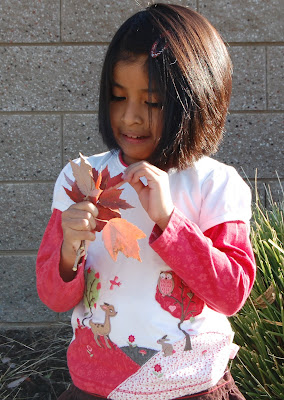So here are a few things you should know about me. I like to sweep problems or inevitable problems under the rug. I don't like to think about them and let them clutter my space. That being said I don't sleep well cause said problems come out of hiding during the hours of 10 pm and 5 am. Second thing you should know is that when confronted put in a uncomfortable situation or when I am mad I cry, which only leaves me more frustrated and mad cause I should be yelling or saying my point in an educated manner and instead I am crying and weak.
A fellow blogger mommy posted this on her blog a few months back this is information I already knew and also know it is true that children notice differences because I work in a very diverse neighborhood and the children I work with are 6 and 7 and believe me differences are noticed and talked about. Sometimes in a constructive mannar and sometimes not so constructive.
These are Aimee words I do not have her permission to use them so hopefully she won't be mad. I edited out portions that had to do with her family.
judges others based on skin color.
That is what new studies reported in Newsweek's "See Baby Discriminate" article by By Po Bronson and Ashley Merryman NEWSWEEK say (this article is in the latest Sept 14th magazine which stopped me in my tracks at the supermarket today and is linked below)
http://www.newsweek.com/id/214989/page/1
The article, in my opinion, is a must read for ALL parents of young children. Children as young as 3ish understand race differences. By 5ish, they understand the racial hierarchy of our society (don't believe in this heirarchy? In domestic adoptions, fees even vary by race. Disgusting and embarassing if you ask me.) Research shown in this article now finds that babies as young as 6 months react differently to pictures of varying races.
The article goes on to state that roughly 75% of white parents of white children DO NOT talk to their children about race. They either are unsure how, or feel that talking about people's color instills racism by calling out our differences. The studies in this article, not surprisingly, point out that this is not the case. In these early years (3 - 5) you have an ability to affect how children see the world.
If your wondering why all this is relavent here goes. Being an adoptive parent in a transracial family is one of those things that I have swept under said rug. Sure Lily and I talk about her beautiful brown skin and we find similarities between ourselves and we talk about mommies freckles but the truth is the talk in my household is minimal at best. I think I am a good parent my child is happy and although snarky at times she is overall a happy kid. I am embarrassed to say that I feel inadequate as the mother of a child of a different race. Although I am embarrassed to admit that I know I am not alone.
What brings this about is that Lily and I were at the park today and Lily was happily playing by herself as only children learn to do. A little boy was hiding under the play structure and he was complaining about not being able to find a friend and his mom said why don't you play with the girl in the pretty skirt to which he replied mom I can't play with her she doesn't have white skin like me. He was also around 4 and those were his exact words. To which his mom replied that is a mean thing to say we don't talk like that. Lily thankfully did not hear this conversation. The ladies husband came over they whispered to eachother and decided it was time to leave the park. Now I wish I had a sensible rational reaction to this but instead my eyes welled up with tears under my sunglasses thankfully and there it is my inadequacy was dragged from under the rug in the daylight hours. If Lily had been in earshot of this child my reaction would have been very conterproductive.
So has anyone read a really good book about this topic. About how to have good constructive conversations about the topic of race before these instances happen. I want ways to empower my child so perhaps she doesn't end up crying alongside her mother next to the twisty slide. And even if tears are shed alongside her mother at least a constuctive honest conversation can happen after the watershed where the mother in question doesn't feel like a complete failure to her beautiful girl.
 so.................as long as someone is willing mine as well take advantage.
so.................as long as someone is willing mine as well take advantage.




 Then one of me it looks like I might be changing my career to news caster. Here is my headshot. Hey that guy to the right is stealing my spotlight. Hmmm...he's kinda hot :)
Then one of me it looks like I might be changing my career to news caster. Here is my headshot. Hey that guy to the right is stealing my spotlight. Hmmm...he's kinda hot :)
















 Every Superhero must protect their identity!
Every Superhero must protect their identity!


